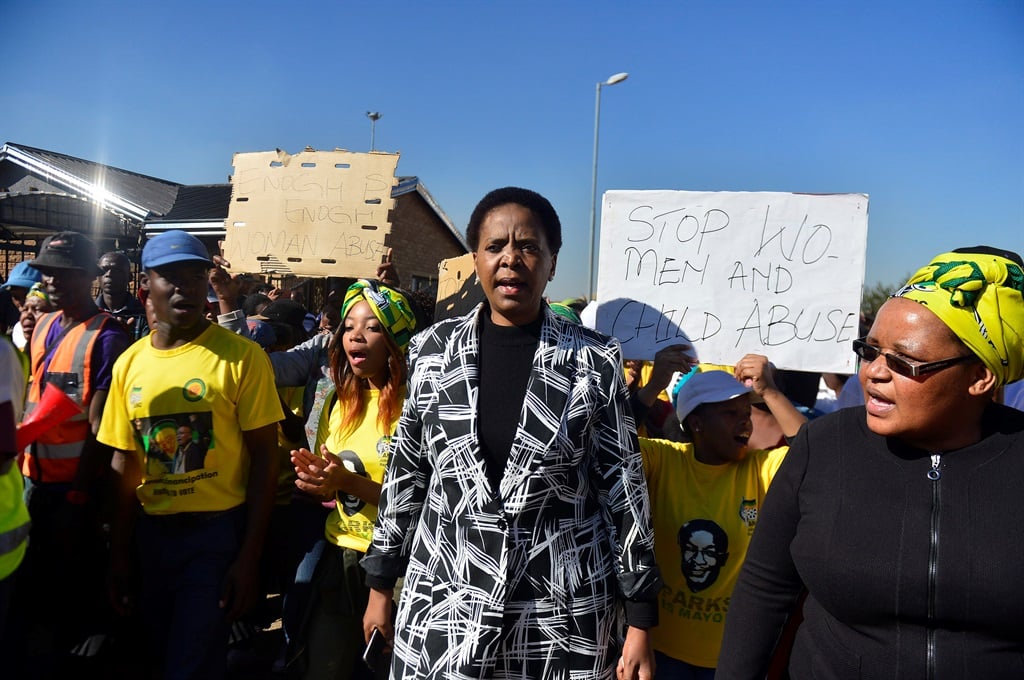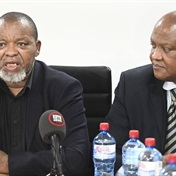
They had their entire lives ahead of them.
Stasha Arendse was 11 years old when she was kidnapped, raped and killed. Karabo Mokoena was 22 when her ex-boyfriend allegedly murdered her. Nombuyiselo Nombewu was 15 when she was burnt to death. Courtney Pieters was only three when she was allegedly raped and killed.
And just last weekend, another four women were found dead in Soweto.
Popi Qwabe was 24. Bongeka Phungula was 28. Lerato Moloi was 27. The other woman has not yet been identified.
These gruesome deaths are part of a long list of recent violent attacks against women and children at the hands of men that has sparked national outrage.
South Africans from all walks of life have taken to Twitter and other social media platforms to vent, defend and debate the pervasive issue of violence against women and children, with the hashtag #MenAreTrash at the centre of it all.
But a trending hashtag is not a solution, especially for a problem so deeply ingrained in the fabric of South African society.
According to Dr Lindsay Clowes, the head of the department of women’s and gender studies at the University of the Western Cape, these instances of violence are not isolated incidents.
Arresting and convicting the abuser in each case, albeit necessary, is not enough.
Male violence is a social problem rooted in social norms, Clowes said.
“It’s a systemic problem of patriarchal gender socialisation and understandings of what it means to be a man or a woman in South Africa,” she said.
“Our children learn that ‘boys will be boys’, that it’s more manly to ‘hold’ your liquor, to have several sexual partners, to drive fast, to take risks and get into fights. Boys are taught that to be a man means not admitting weakness.”
Citing American feminist Bell Hooks, Clowes said that these systems of patriarchy teach men to be “emotional cripples” in order to be seen as a man. And when the only “legitimate emotion” a man can feel is rage, the only social tool they have to express themselves is brute force.
“We can’t continue to live in a sick society like this and breed young men who don’t bother [to] respect or value the lives of their fellow human beings,” said Dennis Bloem, the national spokesperson for the opposition party Cope.
“South Africa and the government must work on finding a better way to fight and stop abuse against women.”
The office of the presidency said that President Jacob Zuma was looking into “how law enforcement authorities would improve their services to the community”.
But according to Vuyo Mhaga, the spokesperson for the police ministry, because of the nature of domestic violence, there was not much the police could do to stop it before it happened.
Instead, Mhaga said that the ministry was making the appropriate changes to make it easier for women to report domestic violence and rape.
“We are setting up a conducive environment for women to report domestic violence and rape. You need to have a space where women can feel comfortable to go and explain themselves so police can gather enough information to move forward,” Mhaga said.
While Mhaga said that it could be difficult for women to come forward and report abuse, especially when it is the people that they love, he urged women to remain vigilant.
“You can’t remain in an abusive relationship,” he said.
But according to Zakhele Mbhele, the DA’s spokesperson on police, this was not enough.
Mbhele acknowledged that the nature of domestic violence happening in intimate settings made it almost impossible for the police to prevent.
But, according to Mbhele, if the police system was actually working effectively and there was a stronger response to perpetrators, there would be a stronger deterrent effect.
“Most police stations are under-staffed, under-resourced, under-trained and that’s an outflow of poor management and that’s rooted in a lack of political will,” Mbhele said.
“It’s really a manifestation of a broader government crisis where there is weak accountability and lack of political will to ensure that implementation happens effectively and that accountability is enforced.”
Mbhele accused Police Minister Fikile Mbalula, Women Minister Susan Shabangu, and Justice Minister Michael Masutha of being “quiet on the issue” and of having “no solutions to make South Africa a safer place for women” for too long.
The DA has petitioned National Assembly Speaker, Baleka Mbete for a debate in Parliament on violence against women, according to the terms of National Assembly rule 130.
The Economic Freedom Fighters has also called for a national day of action against patriarchal violence and rape in South Africa.
Read: ‘If we can mobilise people to vote we can mobilise them to stop rape’
“South African society must confront the harsh reality that in it, there is a normalised patriarchal war against women rooted in a hatred of women,” said the EFF.
“Political, cultural and religious institutions must declare a halt in society and defend women from this patriarchal normalised war. If indeed, there are still fathers, brothers and sons with consciences in society, then they must stand up to confront and face this scourge head on.”
Ultimately, gender-based violence is a problem for which all South Africans need to take responsibility.
“We are all implicated in reproducing these kinds of gendered social practices,” Clowes said.
And in order to prevent more deaths as a result of this violence, societal attitudes need to change.
“We need to change attitudes that make violence against women acceptable,” Mbhele said.
“We need to influence social norms. Violence against women, especially as a way of asserting wrong ideas about masculinity, is unacceptable.”
And Clowes is optimistic about the possibility of change.
“It takes leadership. Those who hold positions of power and authority – politicians, corporate and religious leaders, teachers and so on – have to speak out and act on their words,” Clowes said.
“Rather than seeing violent behaviour by men as an expression of masculine power we need, as a society, to see male violence as a disgraceful expression of inadequacy, insecurity and weakness – as unmanly.”
• Tomorrow, a march against women abuse will take place in Tshwane. The march is scheduled to start at Church Square in Pretoria at 10am and move to the Union Buildings.




 Publications
Publications
 Partners
Partners








